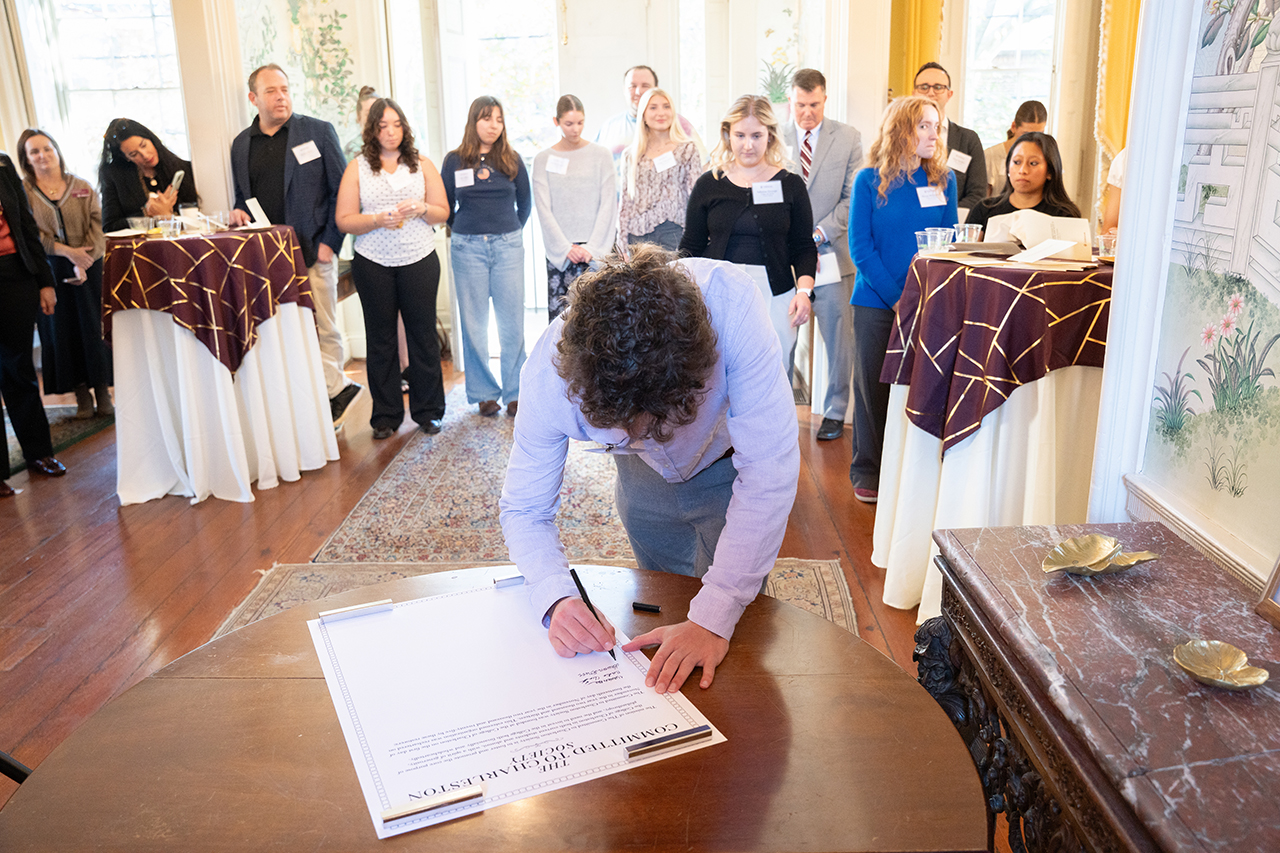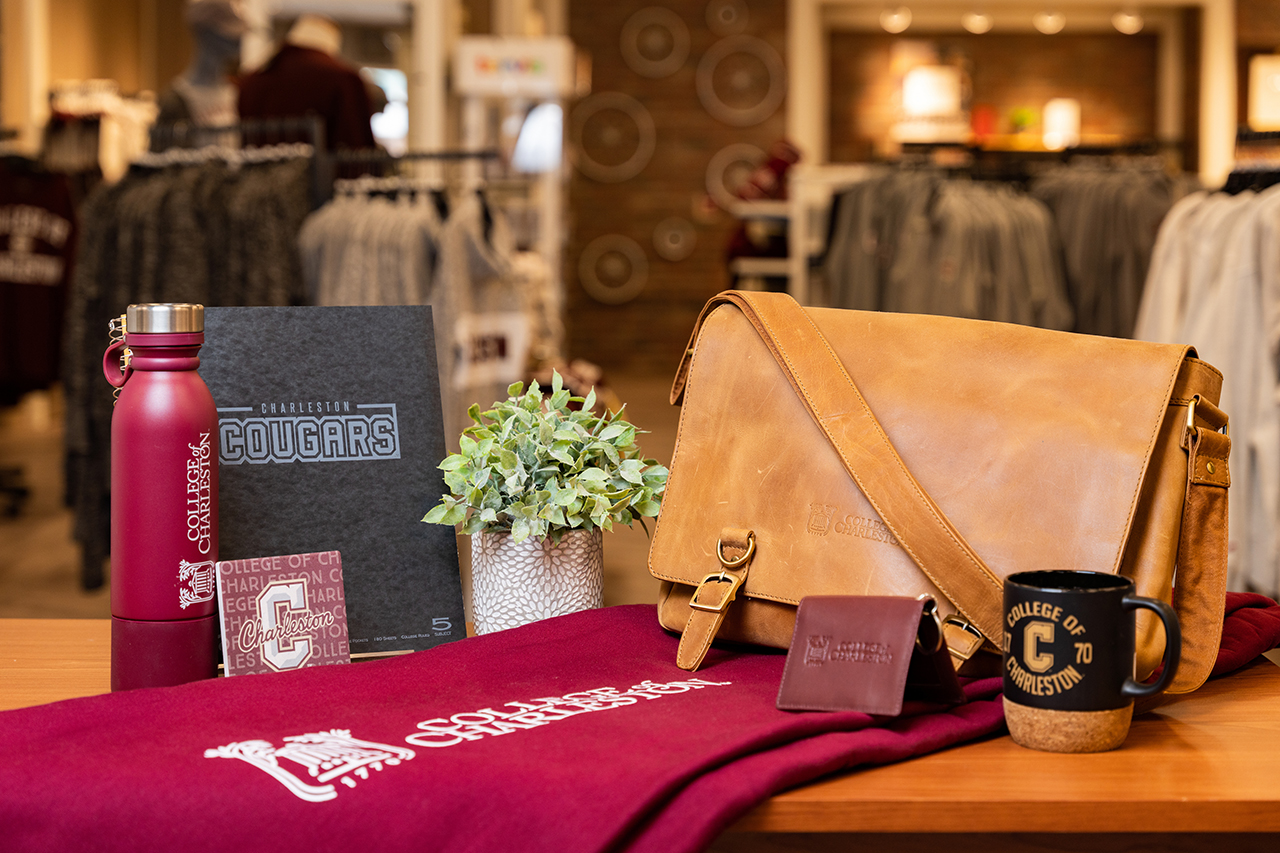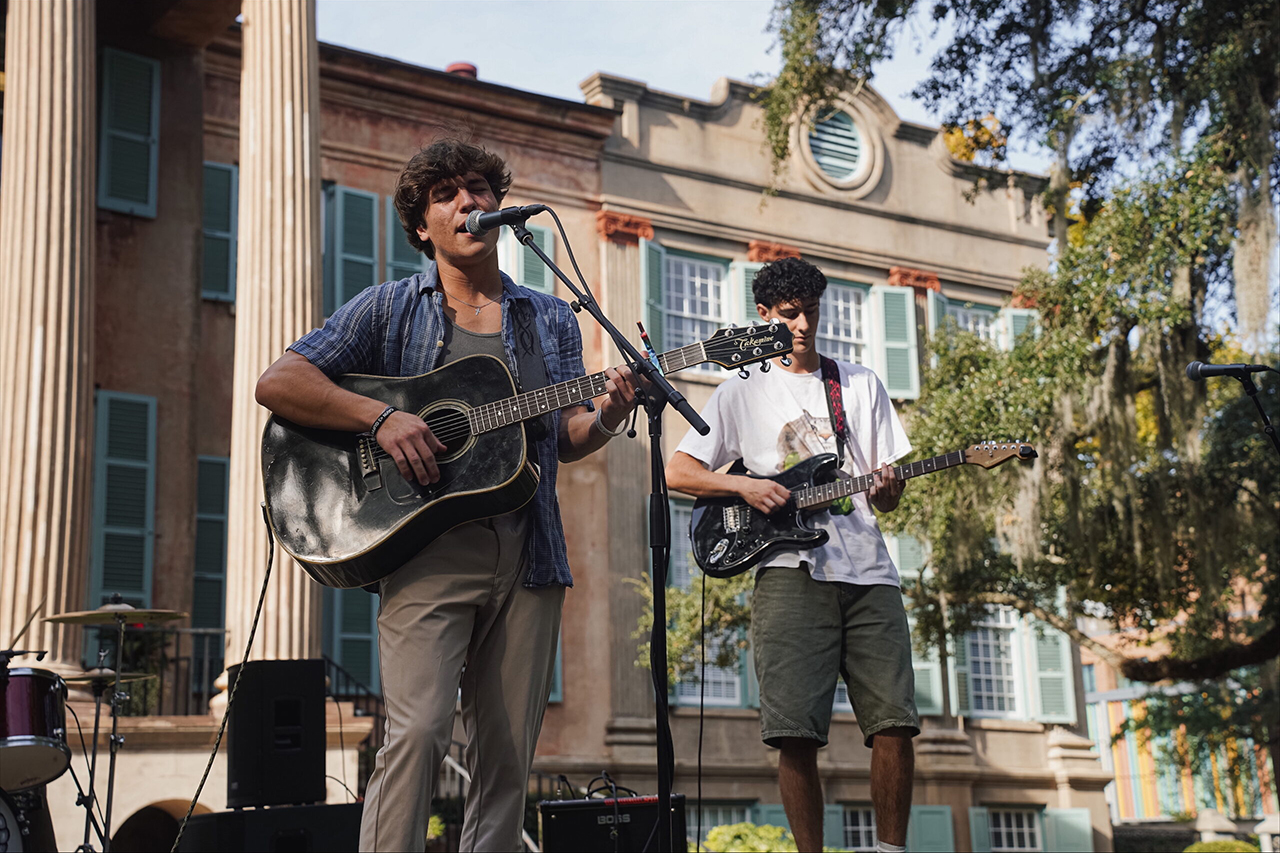CofC Program Is Connecting Classrooms Across Campuses
A new program at the College, Connecting Classrooms Across Campuses, promotes shared learning, dialogue and reflection across institutions.
With an eye toward enhancing the student experience, Courtney Howard, vice president at the College of Charleston, hit upon creating “Connecting Classrooms Across Campuses.” Through the program, which premiered in the 2024-25 academic year, Howard aims to promote shared learning, dialogue and reflection across institutions and increase mutual awareness of programs and opportunities.
Howard invited faculty to propose course-based collaboration with colleagues at partner institutions. Four proposals were funded covering political science, economics and music, and all resulted in cross-institutional student dialogue and engagement. Below are profiles of two proposals that were funded.
Hollis France, associate professor of political science and department chair, held a half-day symposium, Caribbean Feminism/Womanism. South Carolina State University students and their professor, Alison McLetchie, came to the College and joined students across campus to connect with innovative thinkers and creators and participate in vibrant discussions.
For France, the symposium served as an impactful model for inclusive, student-centered learning that bridges institutional divides.
“Through scholarly exchange, artistic expression and grassroots perspectives, students gained a deeper and more nuanced understanding of gender justice within a Caribbean context – strengthening both their academic and civic engagement,” explains France.
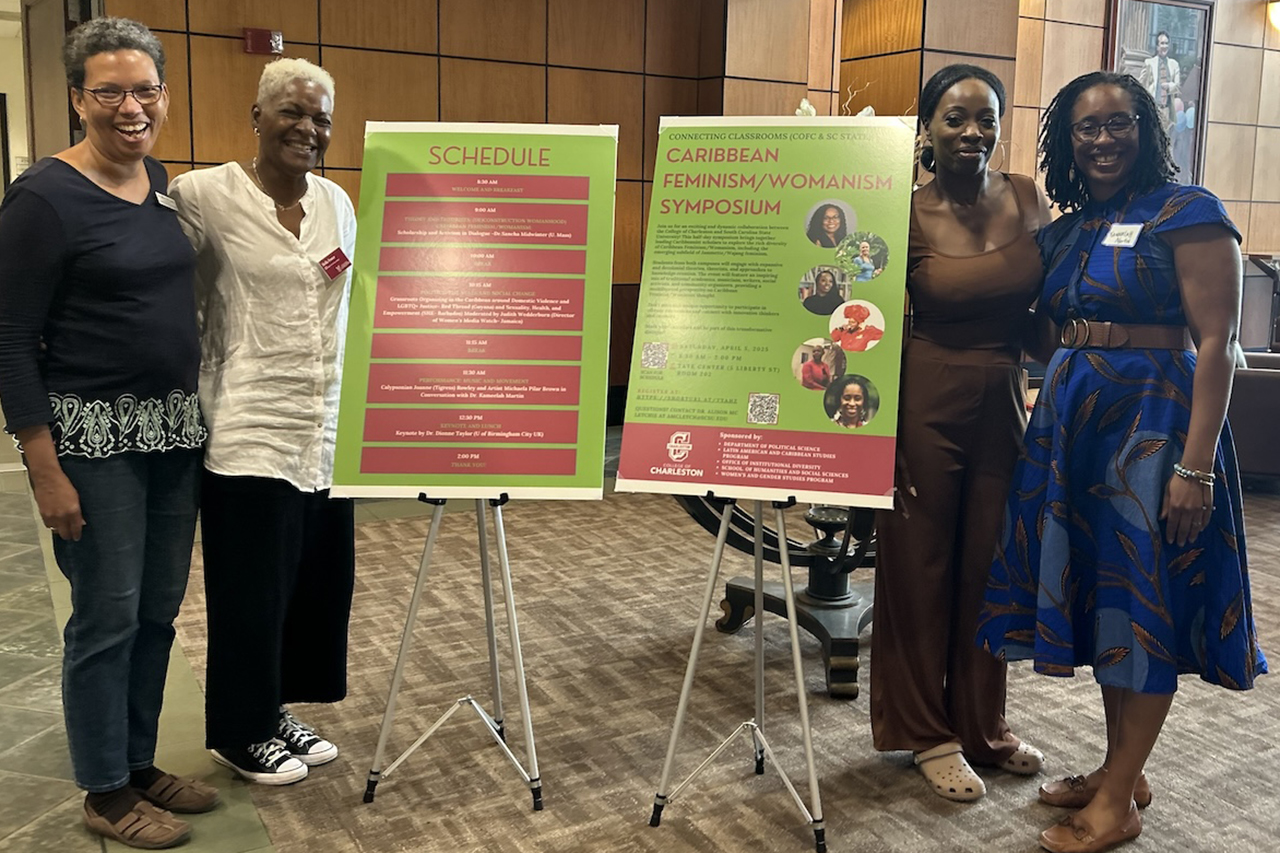
Participating students agree. Hearing from leading Caribbean scholars not only enriched their educational experience, but also inspired them.
“I particularly enjoyed listening to students’ questions during the sessions and appreciated being exposed to diverse perspectives from women across the Caribbean diaspora,” says Gabrielle Gibson, an agribusiness and accounting double major at South Carolina State University. “The symposium provided valuable insights into both the shared and unique challenges and successes experienced by Caribbean women and women of the diaspora, broadening my cultural understanding.”
Adds Taylor Henry, an international studies major at CofC: “Hearing directly from scholars and grassroots activists at the Caribbean women’s symposium connected with me more than almost anything I’ve read in class. It reminded me that, while their regional experiences are unique, they are deeply connected to the same systems of oppression that affect marginalized communities everywhere.”
To show how music has the power to build collaboration, Lee-Chin Siow, associate professor of music, set up projects with the College of Charleston and University of Nevada, Las Vegas. She held joint chamber music performances and master classes with students studying violin at the College and UNLV. The collaboration culminated in a Violin Extravaganza! at the College’s Simons Center.
At UNLV, CofC music majors Payton Lee ’25 and Julia Rhyne ’25 studied under two UNLV professors and joined UNLV students in a public performance on campus. At the College of Charleston, two UNLV students studied under Siow and performed with CofC students at the Violin Extravaganza!
“I am deeply proud of how all the students came together with such heartfelt dedication to put up an evening of beautiful but challenging chamber music,” says Siow. “Witnessing how music effortlessly transcends boundaries and forges genuine connections among us was truly inspiring. I am sincerely grateful for the opportunity to be part of this extraordinary experience.”
For Lee, the collaborative music exchange proved to be one of his most enriching and memorable experiences at the College.
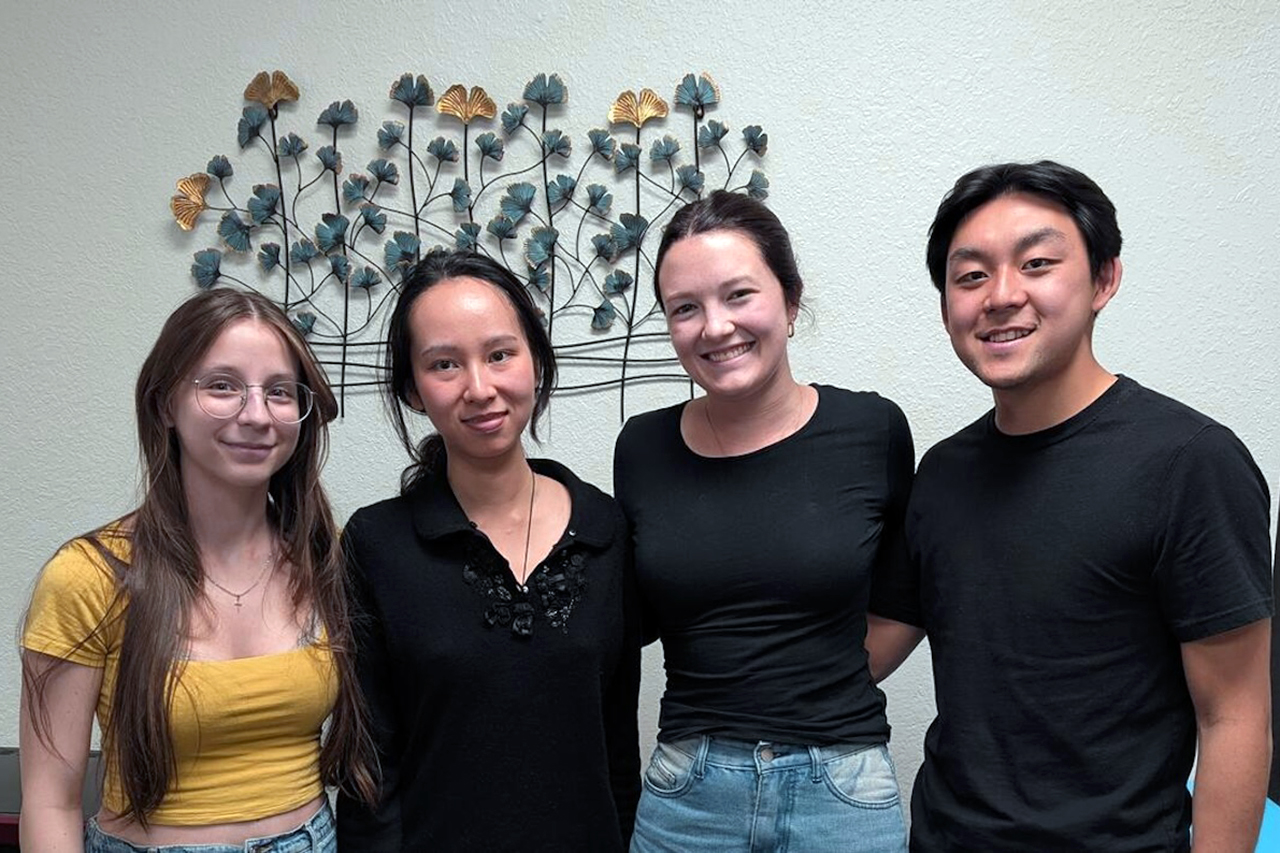
“This experience provided a rare opportunity to step outside of our usual academic and musical environments and immerse ourselves in a new artistic community,” he says. “During this cross-campus collaboration, we were given the task to prepare a concert in a very short amount of time to rehearse with the other students. This encouraged us to listen more intentionally, adapt quickly and appreciate and respect different approaches to music making. This experience pushed us to grow both individually and collectively, strengthening our musicianship and reinforcing the value of collaboration in artistic practice.”
At the Violin Extravaganza!, the audience experienced the range and depth of emotion that a performance can evoke. Pablo de Sarasate’s Navarra for Two Violins and Piano, op. 33, was performed by a CofC and a UNLV performer. Each performance was slightly different, demonstrating the nuance of a performance.
“Prior to this performance, I viewed the violin as being a beautiful and expressive instrument, but I didn’t fully grasp the variety of effects and techniques it could produce,” says Mathisen Wood, a business administration major at CofC. “I gained a new respect for the instrument itself because of this performance. From watching and listening, I noticed that Sarasate’s composition – which has fast-paced parts, harmonics and perfectly timed communication between the two violinists – requires both extreme technical talent and control.”
It’s safe to say that, thus far, Connecting Classrooms Across Campuses has exceeded Howard’s expectations.
“The richness of these collaborations was impressive,” she says. “Our students and faculty were able to learn and teach, respectively, with peers from institutions that, in many ways, are quite different from the College of Charleston. These partnerships are yet another example of our commitment to engaged and innovative learning experiences.”
She looks forward to expanding the program so more CofC students can broaden their perspectives by interacting with students from other institutions.

